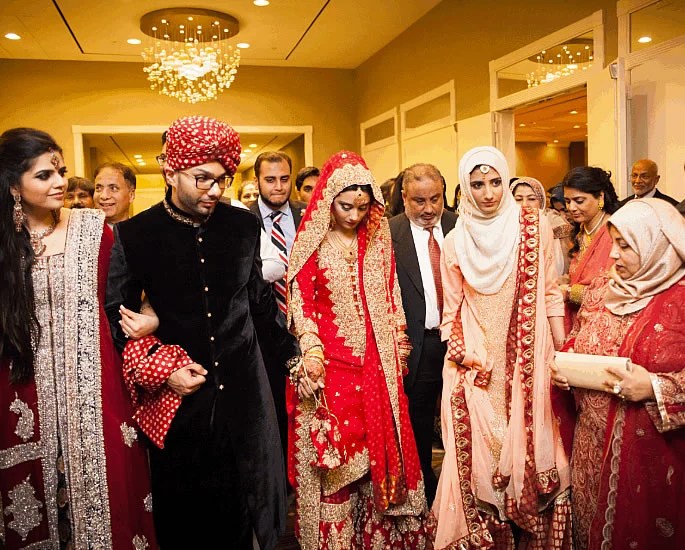Arranged marriages are a common practice in Pakistan, with parents often taking the lead in matchmaking.
While arranged marriages may seem traditional to some, the role of parents in this process is evolving in response to changing societal norms and modern influences.
In this article, we delve into the complexities of navigating the role of parents in arranged marriages in Pakistan and how it reflects the delicate balance between tradition and modernity.
Traditional Matchmaking Practices:
In traditional Pakistani society, parents play a central role in arranging marriages for their children.
They consider factors such as family background, social status, and compatibility in selecting suitable partners.
Arranged marriages are often seen as a way to strengthen familial bonds, preserve cultural traditions, and ensure the continuity of family lineage. Parents take on the responsibility of finding a suitable match for their children and guiding them through the process of courtship and marriage.
Evolution of Parental Involvement:
With the advent of modernity and globalization, the dynamics of arranged marriages in Pakistan are undergoing a transformation.
While parental involvement remains significant, young individuals are increasingly asserting their preferences and desires in the matchmaking process.
This shift towards greater autonomy and agency reflects changing attitudes towards marriage, individuality, and personal choice.
Parents are now more willing to consider the preferences and aspirations of their children, striking a balance between tradition and modernity.
Balancing Tradition with Modernity:
Parents face the challenge of balancing traditional values with the aspirations of their children in the context of arranged marriages.
While they uphold cultural customs and family honor, they also recognize the importance of respecting the autonomy and agency of their offspring.
This delicate balance requires open communication, mutual understanding, and compromise between parents and children.
Parents strive to create a supportive and nurturing environment where their children feel empowered to make informed decisions about their marital futures.
Communication and Understanding:
Successful arranged marriages often hinge on open communication and mutual understanding between parents and children.
Parents must create an atmosphere of trust and respect where their children feel comfortable expressing their preferences and concerns.
Similarly, children must approach their parents with honesty, sensitivity, and maturity, acknowledging the complexities of the matchmaking process and the importance of familial guidance and support.
In conclusion, the role of parents in arranged marriages in Pakistan is characterized by a delicate balance between tradition and modernity.
While parents continue to play a significant role in matchmaking, they are also adapting to changing societal norms and evolving attitudes towards marriage and individuality.
By embracing cultural values while respecting the autonomy and agency of their children, parents can navigate the complexities of arranged marriages with compassion, understanding, and mutual respect.
Through open communication and mutual cooperation, parents and children can forge strong bonds and create lasting unions that honor both tradition and personal choice.


